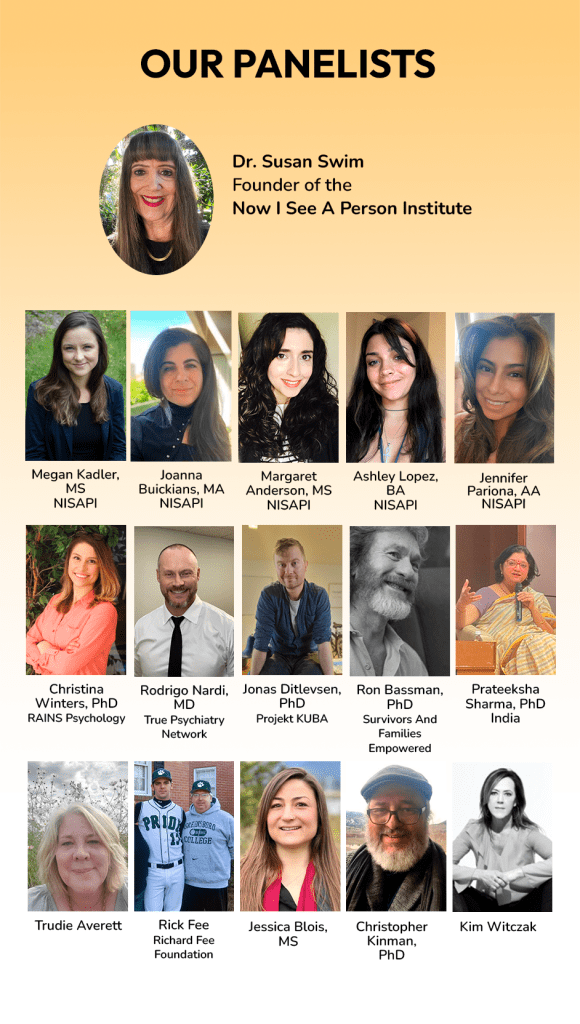
Humanizing Ourselves For The Other
Honoring the human moment—beyond rigid paradigms and the challenges of psychiatry
A dialogical movement rooted in connection, hope, and respect
January 11th, 2026
10:00 A.M. – 2:00 P.M. PST (California Time)
Register Below!
Registration is now open for our January 11, 2026 conference, Humanizing Ourselves for the Other. Please complete the form below to register. CEUs offered. Fees are waived for those unable to pay.
A Place to Begin
This gathering reflects on how we meet one another as human beings moving through challenges rather than as problems to solve. When conversations are guided by full presence, mutual belief and trust, connection, and above all accompaniment—new possibilities open that are not found in systems centered on diagnosis, compliance, or intervention.
We explore questions such as:
• What becomes possible when people construct what they want rather than being defined or directed by psychiatric categories
• How practitioners can rediscover their original mission of accompanying human beings
• How consumers preserve identity and dignity in systems that may label or silence
• What steps allow this shift for practitioners, advocates, and consumers
Invitation
We invite practitioners, advocates, families, and individuals with lived experience to join this next gathering in the Humanizing Ourselves for the Other series.
This year’s theme:
Humanizing Ourselves for the Other
Honoring the human moment — beyond rigid paradigms and the challenges of psychiatry
This gathering explores what becomes possible when we move beyond pathologizing understandings and instead meet one another through relationships that embodies genuine presence, compassion, and mutual belief.
Healing Emerges in Relationship
Healing unfolds when the other is not positioned as a problem to fix but as a person to be met.
In this stance:
• The practitioner is not an expert applying interventions
• The person is not a subject to manage
• The conversation becomes a shared ethical act
When relationships are not organized around diagnosis but around recognition and meaning, people reclaim agency, dignity, and identity. Distress becomes understandable within lived experience and context. We must remember that we meet people during some of the hardest moments in their lives, and these moments are not an identity.
Healing is not the outcome of treatment.
Healing emerges through being human together.
What We Will Explore Together
• How practitioners humanize themselves and enter dialogue as co-learners
• How consumers honor voice and identity in diagnostic systems
• How relational contexts support dignity, meaning, and belonging
• How shared stories invite possibility beyond pathology
This gathering focuses on accompaniment and relational understanding rather than techniques or treatment practices.
Stories of Courage and Change
Across our work, individuals have reclaimed meaningful lives through connection, respect, and mutuality rather than compliance.
• A young person long told she would never live independently began rebuilding when asked what happened and what she wanted
• A family labeled difficult or non-compliant found connection when the conversation shifted from control to shared meaning-making
• Practitioners describe rediscovering purpose when they step out of expert roles and into mutual dialogue
Human beings grow when they are met.
Suffering is understood when placed in context.
Support This Work
Your contributions support:
• Access for consumers and families
• Scholarships for students
• Relational-dialogical training initiatives
• International dialogues grounded in Process Ethics and joint training programs and practices
• Support for individuals emerging from hospitalization or long-term diagnostic identities
Metalogos Issue 48 — Update
Read-only versions of our recent two-part article will be posted on the website one month after publication, in alignment with Metalogos guidelines.
Metalogos remains an important international journal dedicated to systemic, dialogical, and relational practice. Subscriptions support the continuing work of contributors across the world, help sustain a publication that offers deep and critical inquiry into these fields, and keep the journal accessible for practitioners, students, and communities who study these approaches.
CEU’s available upon request (3 CEU for CA)
Registration Fees
65 USD – Practicioners
40 USD – Students & Consumers
We understand that some may struggle to pay, that’s why the fee can be waived to those who cannot afford it.
